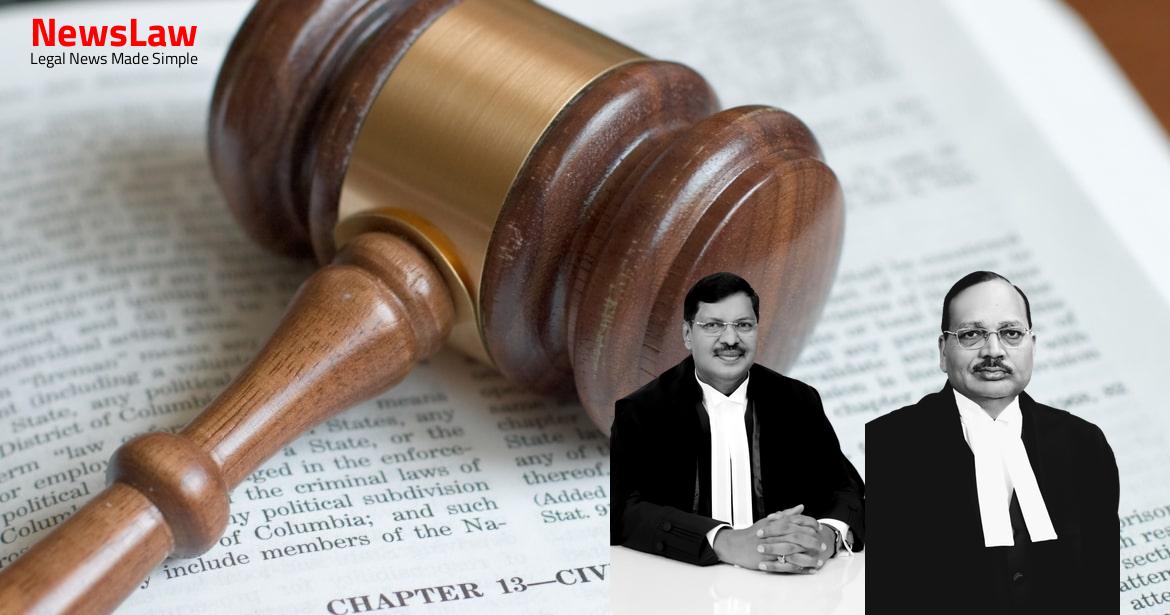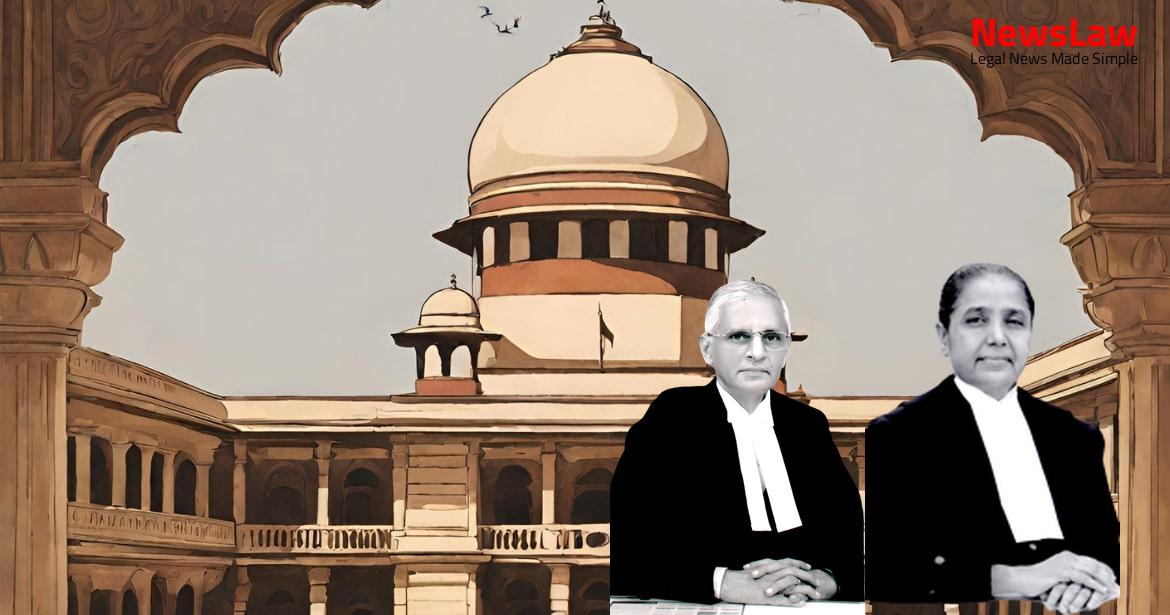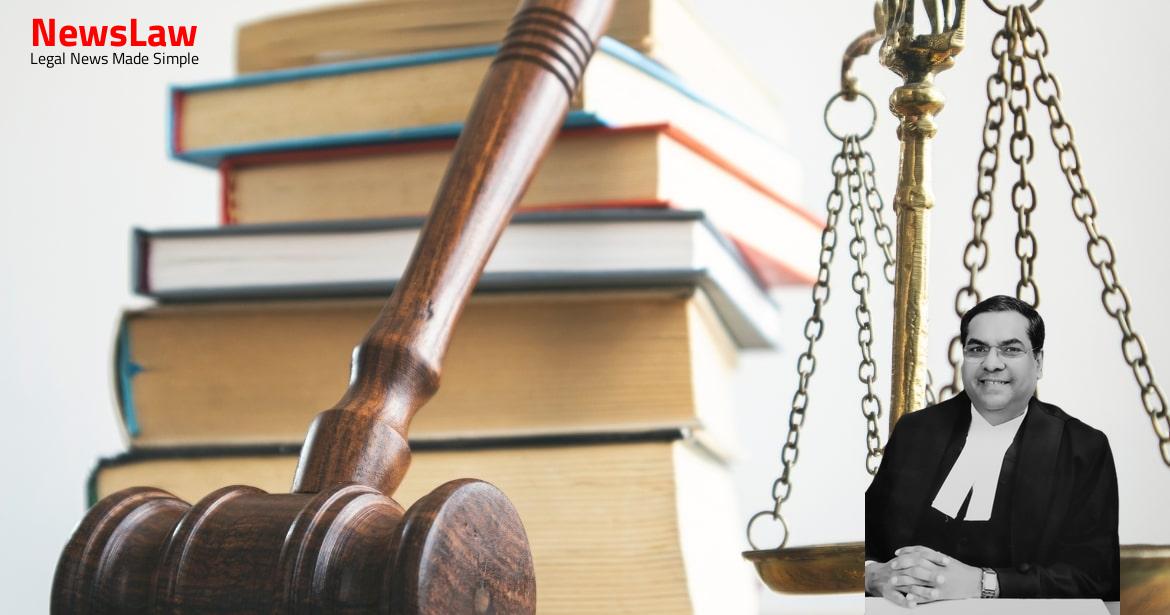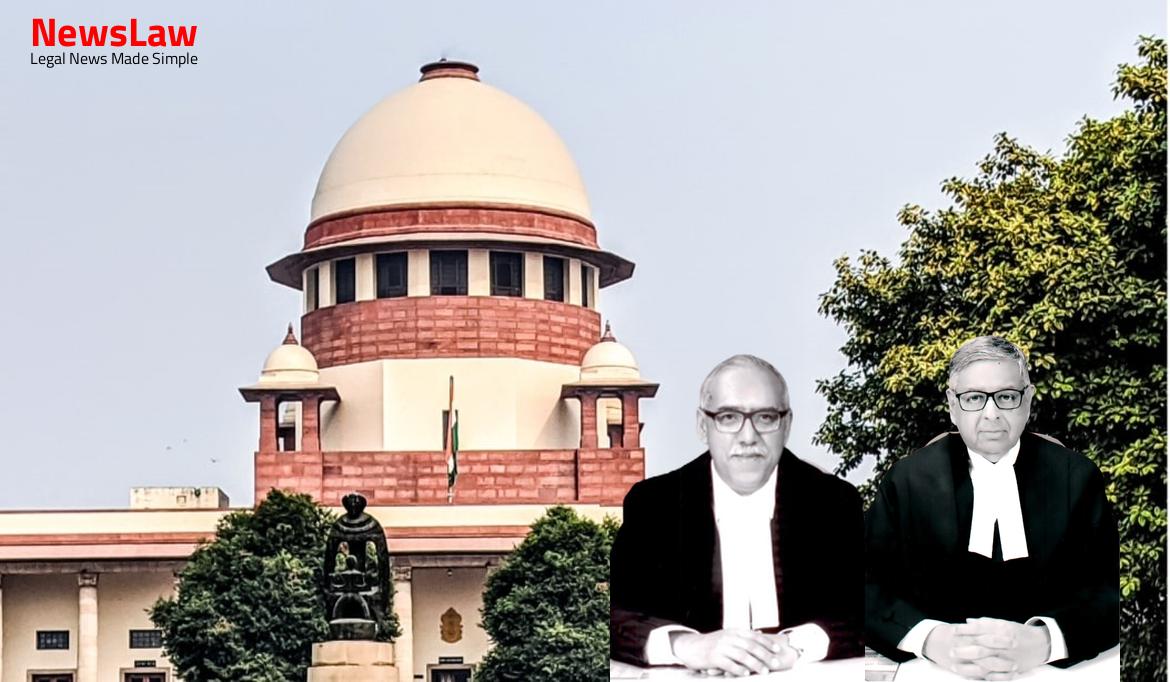In a significant legal case concerning promotion eligibility, the Supreme Court of India has issued a ruling in favor of the junior engineer involved in the dispute. The case revolved around the promotion eligibility of the junior engineer to the post of Assistant Engineer (Civil) in Centralised Services. This decision marks a crucial development in the ongoing dispute between the parties. Stay tuned for more insights on this judgment.
Facts
- Appellant appointed on ad-hoc basis as Junior Engineer on 30.03.1987
- Order issued by Original Name
- Dispute regarding the pay scale of the Junior Engineer
- The appellant made representations for promotion after not being promoted.
- He communicated his eligibility for promotion to the post of Assistant Engineer (Civil) in Centralised Services.
- The State Government sought information on Junior Engineers with Bachelor of Engineering degree.
- The appellant was the only Junior Engineer with a Bachelor of Engineering degree in the Agra Development Authority.
- The appellant filed a Writ Petition in the High Court seeking promotion.
- The appointment of the appellant was made after advertisement and selection process under U.P. Development Authorities Centralized Services Rules, 1985.
- The appellant joined Agra Development Authority on 08.04.1987.
- The claim for promotion of the appellant was rejected on 16.04.2015.
Issue
- The issue for consideration is whether there is a distinction between ‘irregular appointment’ and ‘illegal appointment’.
- The question revolves around determining the difference between the two terms in the context of appointment procedures.
- Understanding this distinction is crucial for the legal analysis of the case at hand.
Also Read: CRPF Act: Validity of Rule 27 for Compulsory Retirement – Case of Head Constable vs. CRPF
Arguments
- The appellant is claiming eligibility for promotion based on a previous court order concerning another Junior Engineer.
- The State argues that the appellant’s appointment did not have the necessary concurrence of the U.P. Public Service Commission.
- The High Court had directed the State to consider another individual, Rajendra Prasad Dwivedi, for promotion after 10 years of service and specific qualifications.
- A subsequent Order modified the previous directive in light of a Constitution Bench judgment, making Dwivedi eligible for promotion upon obtaining a certain qualification.
- The appellant asserts that their services were regularized and should be considered for promotion based on continuous service from the initial appointment.
- The appellant’s appointment is deemed illegal.
- The High Court correctly disregarded the services of the appellant before regularization.
- The facts of the case are undisputed.
Also Read: DAMEPL vs. DMRC: Curative Petition and Arbitral Award Restoration
Analysis
- The appellant’s case is covered by the judgment of the Constitution Bench in the case of Direct Recruit Class II Engineering Officers Association.
- The office memorandum dated 11.03.1994 provided a relaxation for the minimum 10 years of service requirement for promotion to Assistant Engineer.
- Appointment made in total disregard of the constitutional scheme and recruitment rules is considered illegal.
- Appointment could be irregular if there is substantial compliance with the rules and schemes, even if some provisions are not strictly adhered to.
- The distinction between irregular appointment and illegal appointment is clarified.
- The appellant’s appointment was considered irregular as it did not follow the strict procedure of appointment consultations with U.P. Public Service Commission.
- The appellant’s selection process involved competing with other applicants and appointment against sanctioned posts.
- The regularisation of the appellant’s service was mentioned, indicating continued service until the regularisation was in accordance with rules.
- The length of ten years’ service condition for promotions was relaxed in the appellant’s case.
- The High Court refusing to consider the appellant’s case due to non-concurrence of U.P. Public Service Commission was highlighted.
- The constitution bench judgment in Direct Recruit Class II Engineering Officers Association case emphasizes that appointments made against sanctioned posts with prescribed qualifications are legal, even if not confirmed.
- The judgment stresses that continuous officiation after appointment following rules for substantive appointments must be considered for determining seniority, not just confirmation.
- Seniority cannot be solely based on confirmation as it is unpredictable and does not reflect efficiency or availability of vacancies, violating Articles 14 and 16.
- The State of M.P. vs. Lalit Kumar Verma case reiterates the importance of counting officiating service for seniority based on rules of regular substantive appointments.
- The Allahabad High Court in the case of State of U.P. vs. R.P. Dwivedi highlights that the principle for deciding inter se seniority must align with equality principles in Articles 14 and 16.
- A stopgap appointment without considering all eligible candidates and not following appointment rules cannot be equated with regular appointments, but continuous service till regularization counts for seniority.
- The constitution bench concludes that seniority should be counted from the date of appointment following rules, not confirmation, and continuous officiation after appointment according to rules must be considered for seniority.
- The High Court erred in dismissing the appellant’s petition.
- It was unjust to deny promotion to the appellant when all other three candidates were appointed through the same selection process in 1987.
- The appellant had obtained the required degree in 1987, which was prior to his junior colleagues.
Decision
- The petitioner is entitled to promotion to the post of Assistant Engineer (Civil) from the date on which his junior possessing the Bachelor of Engineering / A.M.I.E. has been promoted.
- All consequential benefits shall be granted to the petitioner.
- The appeal is allowed.
- The Judgment and Order passed by the High Court dated 11.09.2017 is quashed and set aside.
- The Order passed by the Respondent No 1, dated 16.04.2015 is quashed and set aside.
Case Title: SIRAJ AHMAD Vs. THE STATE OF UTTAR PRADESH
Case Number: C.A. No.-009412-009412 / 2019



